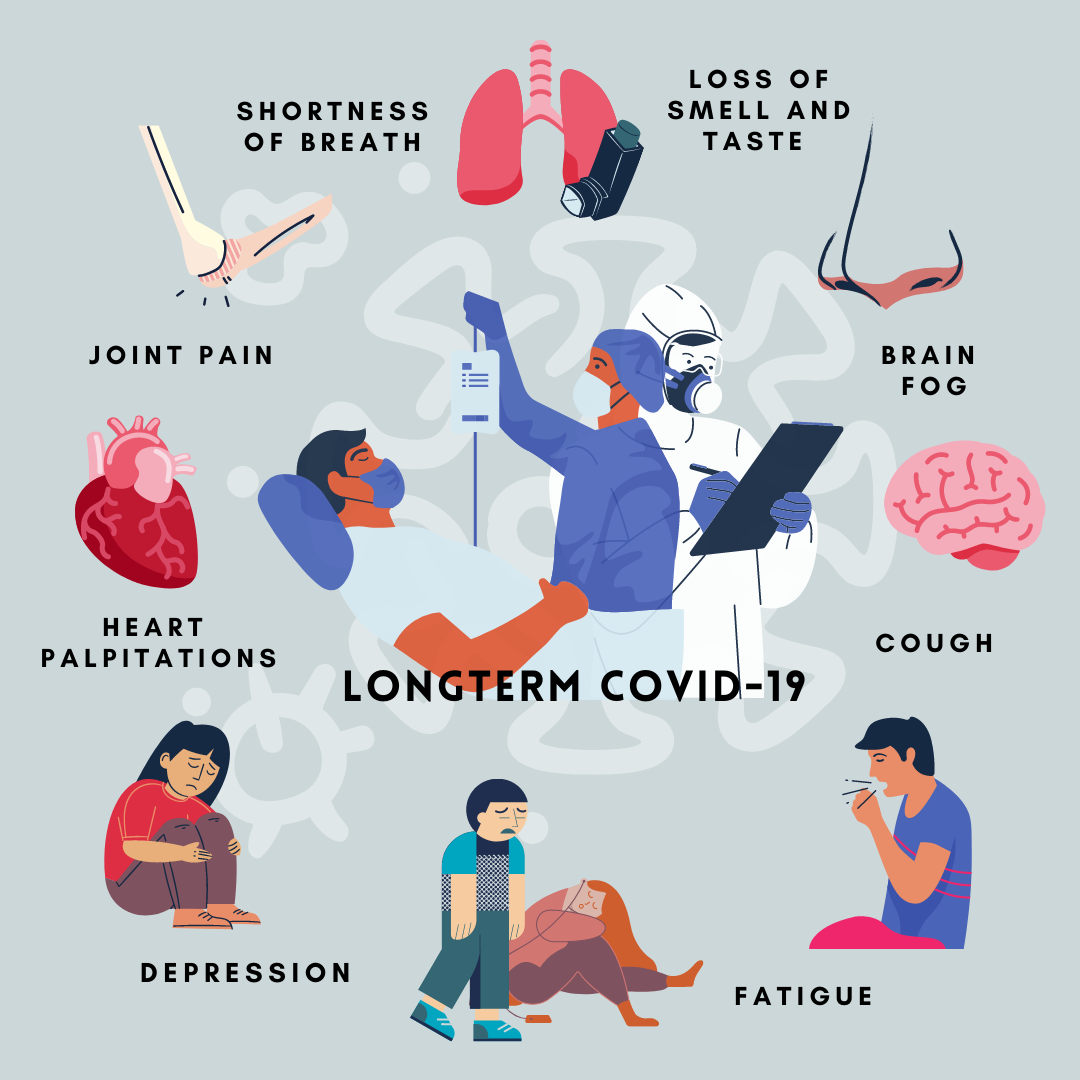By Alejandro Ortega, Third Year, Physics
A systematic study involving the University of Bristol aims to better understand how to treat long COVID, which affects around 10 per cent of those who get the virus.
Based on the discrepancy between the government’s lockdown roadmap and vaccination strategy, it seems there will be a five-month period where there are no legal restrictions, yet young people are not yet fully immunised against COVID-19.
Now in some senses that is not much to worry about. The probability of a young person dying after catching COVID is nearly negligible.

But while the direct risks from COVID are well understood, we have a lot less data on the long-term effects of COVID - known as long COVID. A recent ONS survey suggests 17 per cent of those aged 17-24 still have symptoms one month after testing positive for COVID.
Long COVID symptoms can range from a painless discolouration of the toes, to debilitating brain fog and fatigue that make the smallest of chores utterly exhausting. Even for those who survive it, COVID can be a life-changing disease.
But there is just an awful lot we just don’t understand about long COVID. Why do some people get it, while the majority of those infected feel no long-term effects? What is the best way to diagnose long COVID? And once diagnosed, what are the best ways to treat it?
The probability of a young person dying after catching COVID is nearly negligible.
Up to now, data on long COVID have been hard to collect. One approach has been to encourage people to self-report COVID symptoms on the ‘ZOE’ app. But the kind of people who have downloaded the ZOE app are not necessarily representative of the whole population, so the data is likely biased.
A recently launched study involving Bristol University aims to take a more systematic approach. In 1990 and 1991, University researchers recruited 14,000 expectant mothers for a project called ‘Children of the 90s’. These mothers were selected to be representative of the wider population.
Since then, researchers have kept in regular contact with those mothers, and their children, and have studied the group to better understand topics such as childhood obesity, the effects of air pollution and mental health issues.
Bristolian children of Black, Asian and ethnic minorities needed for new study on how immune systems respond to COVID-19
ICU COVID-19 mortality rates are dropping, but not fast enough
These same participants will now help contribute to our understanding of long COVID, with the aim of treating the long-term effects of COVID much more effectively.
Featured Image: Elevate / Unsplash
Do you know anyone who is suffering with long COVID symptoms?








